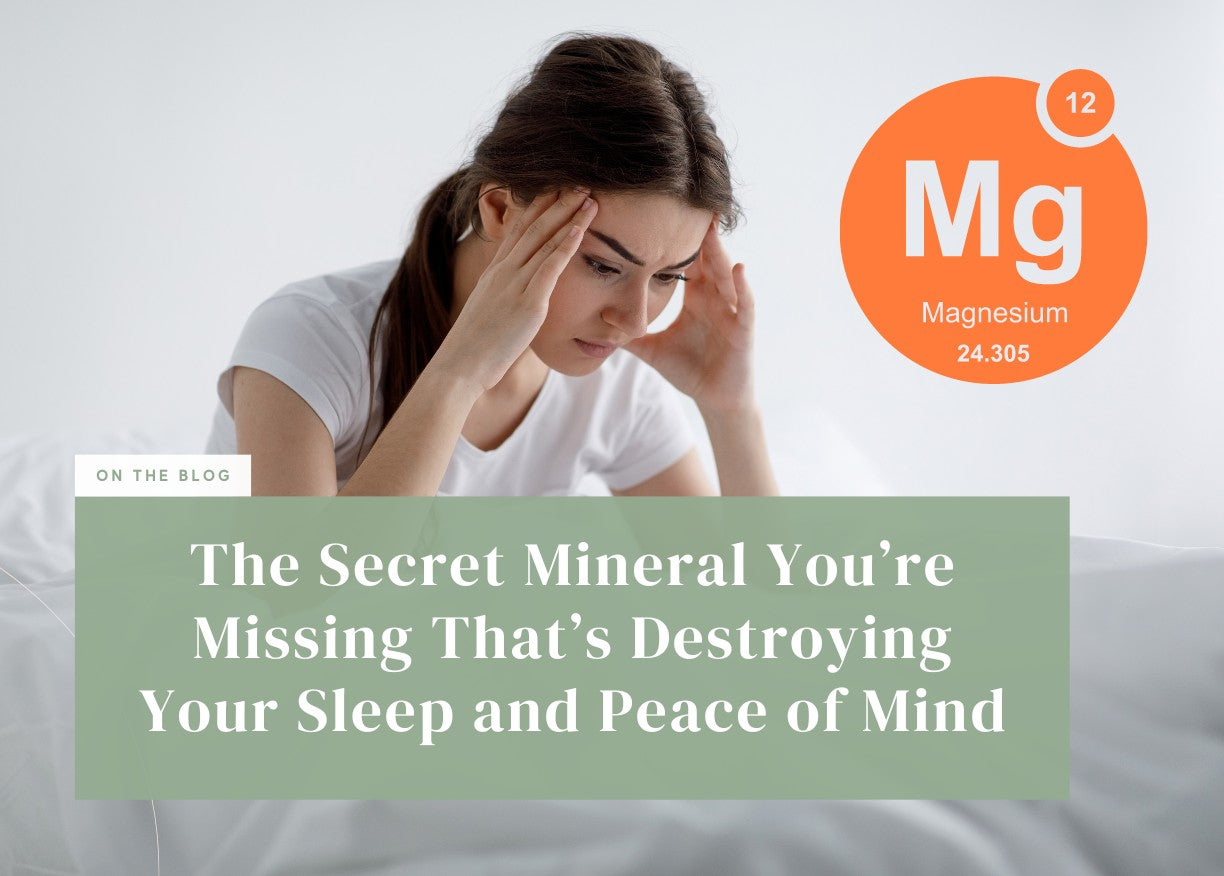Why You’re So Tired: The Modern Day Problem you didn't know and How to Fix It
In today’s world, exhaustion has become the norm. We wake up tired, spend the day fighting fatigue, and collapse into bed, only to repeat the cycle the next day. But why are we so tired, even though we're doing less physical work than our ancestors? The answer lies in how our brains and bodies have evolved—and in the mismatch between our ancient biology and modern life.
At Sweet Zzz, we’re committed to helping you get the best sleep possible, so let’s explore the reasons behind today’s overwhelming fatigue and what you can do about it.
1. The Evolutionary Mismatch: Why We’re Overloading Our Brains

Our brains haven’t changed much in the last 300,000 years, but the way we use them has evolved dramatically. Imagine a human from prehistoric times: when he woke up, his decisions were simple—where to find water, what food to gather or hunt, and how to stay warm. The rest of the day was spent in routine activities, with little mental strain.
Fast forward to today, and modern humans face a flood of choices the moment we wake up: what to eat for breakfast, what to wear, how to juggle work, family, and social life, and a thousand other decisions throughout the day. Studies suggest that we make over 35,000 decisions daily—a number that our caveman ancestors would find unimaginable.
The problem? Our brains aren’t built to handle this much mental work, leading to decision fatigue and making us feel tired even if we haven’t done any physical labor.
2. Glutamate: The Brain’s Traffic Jam

Every time we make a decision, our brain uses Glutamate, a neurotransmitter that helps neurons communicate. But there’s a catch: after a while, Glutamate starts to build up in our brain, clogging the system and making it harder to think clearly. This is one of the reasons why decision-making becomes more difficult as the day goes on, and why we feel mentally exhausted.
Imagine your brain as a bustling city: at the start of the day, traffic moves smoothly, with cars (thoughts) moving freely on the roads (neural pathways). But as the day progresses and more decisions are made, trash (Glutamate) starts piling up on the streets. If this trash isn’t cleared out, it slows down traffic, making it harder to navigate, which is exactly what happens in your brain.
Solution: To clear out the “trash” and refresh your brain, consider taking a nap in the afternoon. Even a short rest can help your brain clear out the accumulated Glutamate, allowing you to think more clearly and feel less fatigued.
3. Decision Fatigue: Too Many Choices, Too Little Energy

The modern world presents us with an overwhelming number of choices, from what to eat and wear to what to watch on TV or social media. This constant decision-making leads to decision fatigue, which drains your mental energy and leaves you feeling exhausted.
But there’s good news: you can limit decision fatigue by making fewer decisions throughout the day. Here’s how:
- Plan Your Week in Advance: Choose your outfits or plan your meals ahead of time so you don’t have to make those decisions every day.
- Set Routines: Create daily routines that reduce the number of choices you need to make. For example, stick to the same morning or evening routine to free up mental energy for more important tasks.
4. Adenosine and Caffeine: The Real Reason for the Afternoon Crash

Another chemical that plays a role in fatigue is Adenosine, which builds up in your brain throughout the day, making you feel sleepy. Normally, as Adenosine accumulates, you’d naturally start to feel tired and ready for bed.
But caffeine blocks Adenosine from doing its job. While that cup of coffee in the morning helps you stay alert, it’s only temporary. Once the caffeine wears off, Adenosine floods your brain, causing the dreaded afternoon crash.
Solution: One way to avoid this crash is by taking a coffee nap. Drink a cup of coffee, then immediately take a short 20-minute nap. When you wake up, the caffeine will have kicked in and your body will have cleared some of the Adenosine, leaving you feeling energized.
Another tip is to drink coffee between 9 a.m. and 11 a.m.—this ensures that the caffeine’s effects last through your workday without disrupting your natural sleep rhythms later at night.
5. Chronotypes: Why We’re Not All the Same

Have you ever wondered why some people are early birds and others are night owls? It all comes down to your chronotype, which is your body’s natural sleep-wake cycle. Some people naturally wake up early and are most productive in the morning (Lions), while others thrive in the evening and feel groggy in the morning (Wolves).
In prehistoric times, this variation in chronotypes was an advantage—it meant that some people could stay awake at night to guard the camp while others slept. But in today’s 9-to-5 society, night owls are often forced to wake up early, leading to chronic fatigue.
Solution: Try to align your schedule with your chronotype as much as possible. If you’re a night owl, give yourself time in the morning to fully wake up before diving into important tasks. And if you're a morning person, tackle your most challenging tasks early in the day when your energy is highest.
6. The Impact of Light and Technology on Sleep

In prehistoric times, the setting sun was a natural signal for sleep, triggering the release of Melatonin, the hormone that helps your body transition from wakefulness to rest. But today, our constant exposure to artificial light—especially from screens—tricks our brain into thinking it’s still daytime.
When we scroll through social media or watch TV late at night, the blue light from our screens suppresses Melatonin production, making it harder to fall asleep even though we feel tired.
Solution: Limit screen time in the hour before bed, or use blue light filters to minimize the impact on your sleep cycle. This will help your brain recognize that it’s nighttime and start producing Melatonin, making it easier to fall asleep.
7. Quality Sleep: The Ultimate Cure for Fatigue
One of the simplest yet most important reasons why we’re so tired is that we’re not getting enough quality sleep. Most adults need 7-8 hours of sleep per night, but many of us only get 6 or less. Without adequate sleep, your body doesn’t have enough time to clear out the chemicals (like Glutamate and Adenosine) that build up during the day, leaving you tired even when you wake up.
Solution: Prioritize getting 7-8 hours of sleep each night. Create a bedtime routine that helps you wind down, avoid screens before bed, and make sure your sleep environment is comfortable and conducive to rest. Investing in high-quality sleep products, like Sweet Zzz’s natural mattresses and bamboo sheets, can make a big difference in improving your sleep quality.
Final Thoughts: How to Combat Modern-Day Fatigue
While our modern world is filled with conveniences, it also overloads our brains in ways that our ancestors never experienced. But by understanding the causes of fatigue—whether it's decision overload, chemical imbalances, or mismatches in sleep cycles—you can take steps to reclaim your energy and feel more rested.
At Sweet Zzz, we believe that better sleep leads to better days. By aligning your habits with your natural chronotype, limiting decision fatigue, and prioritizing quality sleep, you can break the cycle of exhaustion and wake up feeling refreshed.
Explore our range of sleep products, including natural mattresses, bamboo sheets, and pillows, designed to help you get the restful, rejuvenating sleep you need.







